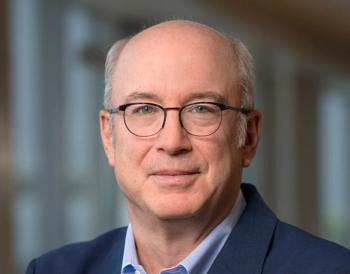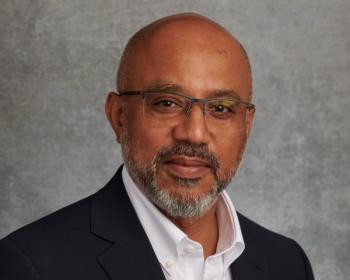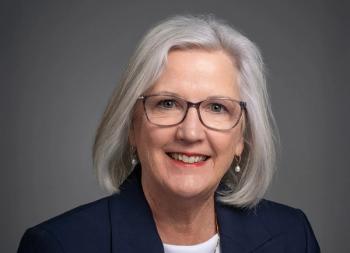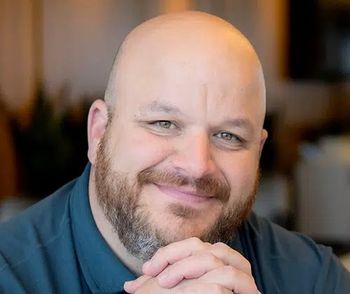
LeanTaaS looks to gain strength in hospital market

The company touts the value of its software in helping hospitals serve more patients and unlock their capacity. Sanjeev Agrawal, LeanTaaS president, spoke with Chief Healthcare Executive about the firm’s growth.
In Sanjeev Agrawal’s view, the business of healthcare goes beyond treating patients.
Agrawal is president and chief operating officer of
“I believe the business of healthcare is not the business of providing care,” Agrawal told Chief Healthcare Executive. “It’s one, data manipulation. How does a doctor know what to prescribe? There’s tons of data now, thank goodness, to know what to prescribe, or what to operate on. The second is logistics. If you don’t have these two things right, you can have the best caregivers, you won’t get the patients.”
Over the past year, LeanTaaS has seen robust growth. The company, based in Santa Clara, Calif., is working with more than 500 hospitals in 43 states. The company has added nearly 100 hospitals over the past year.
LeanTaaS is providing its cloud-based “iQueue” solutions to several large systems, including CommonSpirit, MD Anderson Cancer Center, Memorial Sloan Kettering Cancer Center, NewYork-Presbyterian, Penn Medicine, Yale New Haven Health and others.
“The velocity which we have grown right through COVID has been just exceptional,” Agrawal said in an interview at the HLTH Conference in Las Vegas in November. “In many ways, we were solving a problem that became even more apparent when COVID hit, because of the constraints of in-person capacity, constraints in getting OR volume back.”
“Every hospital we know is facing tremendous amounts of financial pressure,” Agrawal said. “They’re also facing this unheard of labor shortage. And we happen to be in this position when we’re solving both of these problems.”
- Read more:
Hospitals looking at ‘very bumpy 2023’
The company’s software enables companies to boost revenue, he said. He likens it to an airline that boosts a flight’s capacity from 80% to 82%.
“When you think about what we really do, we unlock capacity and maximize yield,” he said. “In the airline metaphor, it’s as if we enable more airplanes to take off and they are fuller when they take off.”
(See portions of our interview with Sanjeev Agrawal in this video. The story continues below.)
‘Little engine that could’
LeanTaaS aims to expand its capacity to work with health systems, after
After the acquisition, Paul Moskowitz, a principal at Bain Capital, said he expects LeanTaaS to continue to grow.
“We believe LeanTaaS is well-positioned for continued long-term growth and see significant opportunity to scale the business through continued market penetration, strategic acquisitions, product innovation, and adjacent market expansion,” Moskowitz said in a statement.
LeanTaaS has hired about 100 people over the past year, boosting the workforce to 300.
“This was the little old LeanTaaS, the little engine that could, five years ago,” Agrawal said. “It’s amazing to watch this journey.”
LeanTaaS has been getting more hospitals to use its software to handle scheduling solutions, allowing hospitals to fit in more procedures. The company’s software is being used across 55 health systems and in 3,000 operating rooms, Agrawal said.
“At a time when the need for surgeries are rising, the ability to get them done in the same number of operating rooms, with the same number of nurses, the same number of anesthesiologists, and providing access to patients or surgeons, in fact, that need has never been higher,” he said. “Plus, the OR is the economic backbone of a hospital. So one more surgery done today is like flying an airplane that's fuller and has more passengers because the fixed cost and the variable cost doesn't change.
“If you can actually get one or two more cases done today across your 10-OR system, that's just money to the bottom line,” Agrawal said.
LeanTaaS is also working extensively with infusion centers to boost capacity and ease scheduling headaches. LeanTaaS has its software in 500 infusion centers with 11,000 chairs.
The company’s newer product, aimed at helping hospitals better manage in-patient capacity, was introduced two years ago, but it has started to gain steam over the past year, Agrawal said. It’s being used in 20 hospitals across 4,000 beds.
“The launch of the new product for patient capacity has really rounded out our portfolio of applications,” Agrawal said.
The challenging economic environment for hospitals also presents opportunities for LeanTaaS, Agrawal said. With companies searching to find revenue, the company offers solutions to get more procedures scheduled.
“Capacity utilization can take negative operating margins of a hospital and actually raise it by one or two percentage points,” he said. “The margins are so thin in this business, every point of capacity you extract, drops to the bottom line.”
‘Opening up more OR time’
Patrick McGill, executive vice president and chief transformation officer at Community Health Network in Indianapolis, said LeanTaaS has revamped the scheduling of operating rooms.
Previously, operating room scheduling was managed with massive spreadsheets, McGill said. “They were looking for some help,” he said.
Community surgeons are able to see available operating room times much earlier, and they are finding time up to 28 days in advance. More procedures are being scheduled, and surgeons are embracing the new technology, he said.
“Any tools you can give them to make them busier, usually there’s a relatively low level of buy-in,” McGill told Chief Healthcare Executive. “Overall, the buy-in has been good. It’s opening up more OR time, making them busier.”
The software has also helped manage patients requiring multiple surgeries, which can be more complicated to schedule, McGill said.
Agrawal contends the solution can help hospitals gain a competitive advantage in attracting surgeons.
“There’s a lot of surgeons in the community that operate in multiple hospitals,” he said. “If you make it easier for them to get cases done in Hospital A than Hospital B, all things being equal, why wouldn’t they take more cases in hospital A?”
Patients can benefit from better OR scheduling, Agrawal said, because they can get procedures done more quickly with less anxiety, and before their condition worsens.
“From a patient perspective, this means I don't have to keep waiting and guessing when my surgeon will be able to find time for me,” Agrawal said. “Earlier intervention, I get taken care of sooner, which obviously means I avoid more complications.
“So it's a win-win-win for everyone,” he said. “It's a win for the surgeon. It's a win for the patient. It's a win for the hospital.”






























